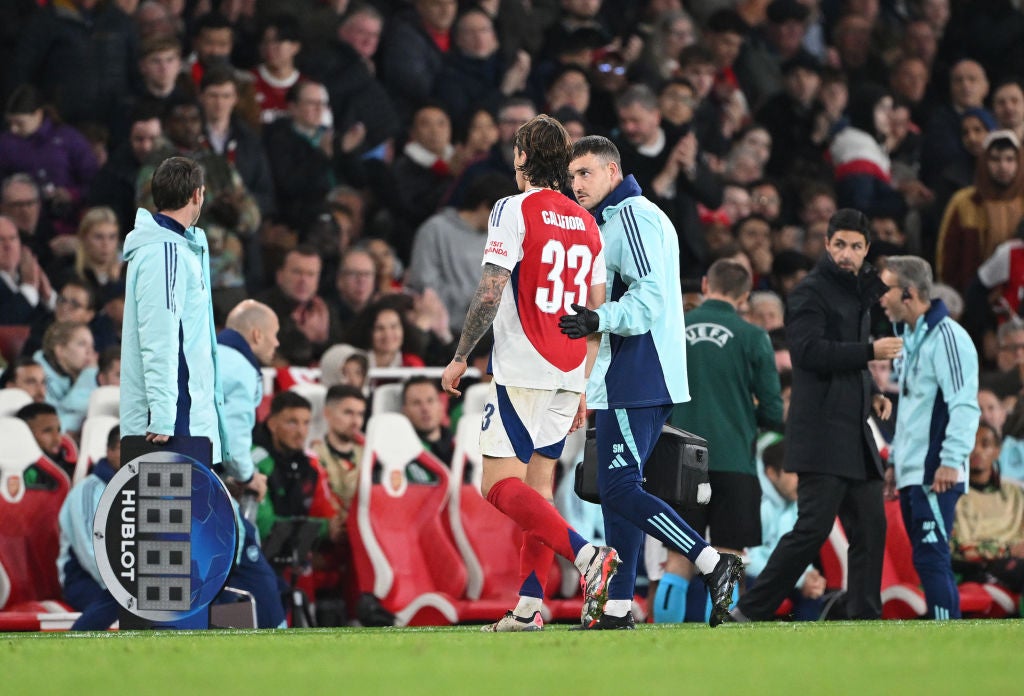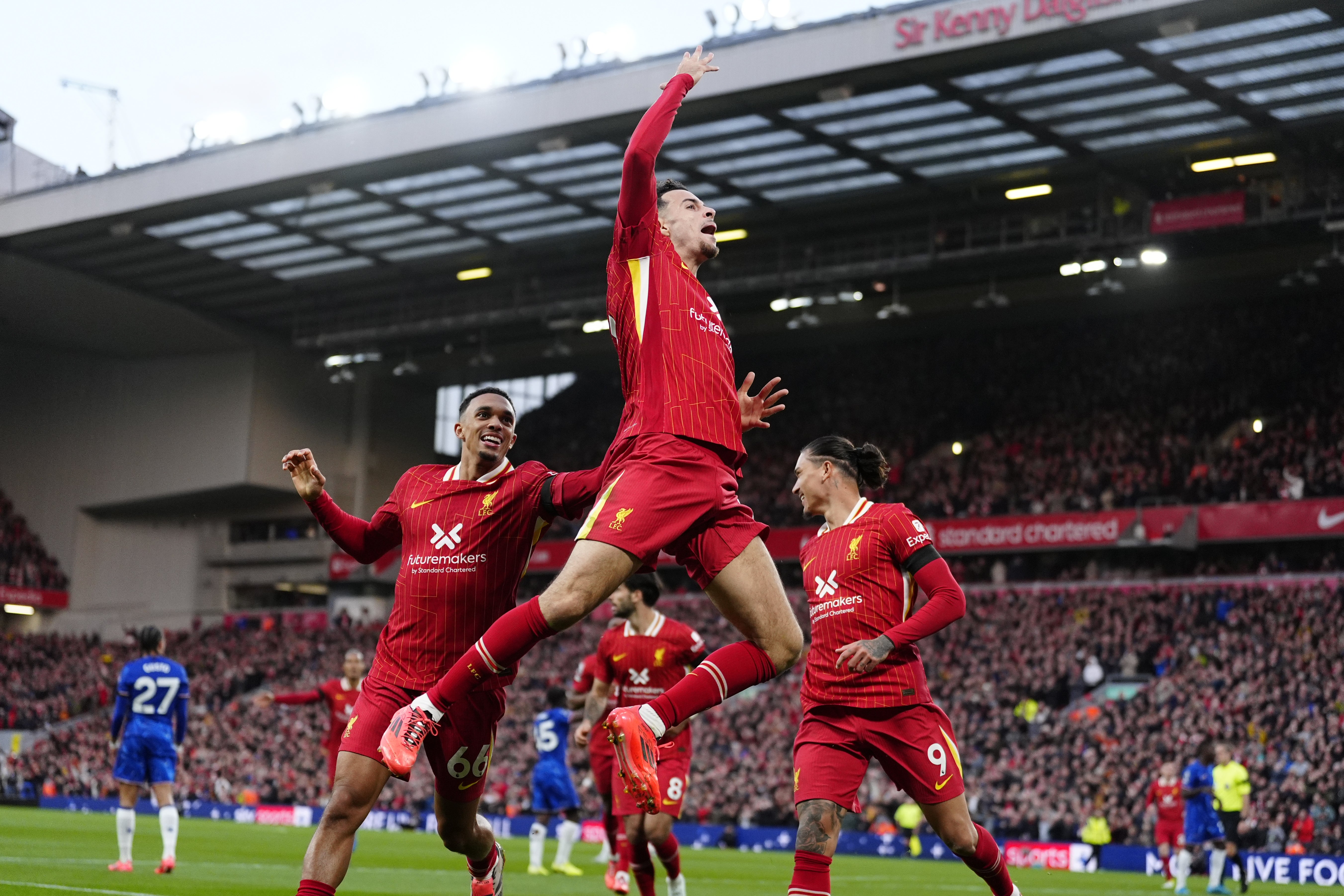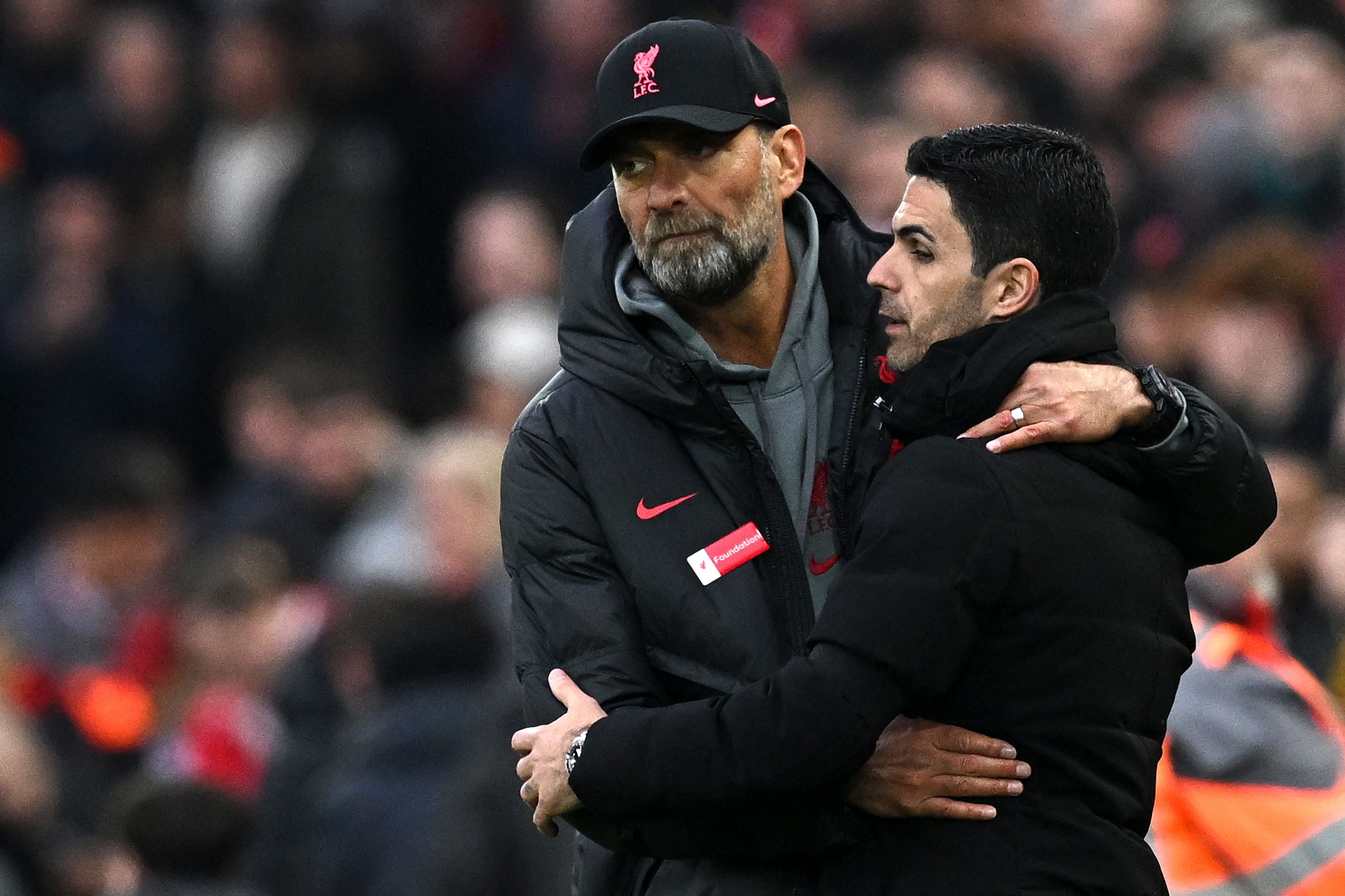Jurgen Klopp might well recognise something in Mikel Arteta’s words this week. The Arsenal manager insisted his team would be “flying” for Sunday’s home match against Liverpool, despite a number of absences potentially grounding the squad. Such optimism – that can sometimes seem so extreme that it’s delusional – is very much in-keeping with Klopp’s approach of only ever speaking positively in public. Don’t let people consider the negatives. The idea is that such assertiveness then manifests in the match itself.
This match may still see a personnel crisis manifest for Arsenal. If all injuries are confirmed, it could ensure Arteta has already lost seven of his best XI for significant games this season. This game alone could miss 75 per cent of his preferred defence and 50 per cent of his ideal attack. Some of those have been the result of red cards, in a way that has been partly self-inflicted, but some have been the rank bad luck of injuries. The frustration is all the deeper since this was supposed to be the season Arsenal closed the fine margins to Manchester City and the title. Instead, such absences open up all manner of space for error. It’s partly why they are now four points behind Liverpool.
That’s of course where there is an extra edge to this match. Arsenal have been so fixated on chasing down City, yet here are Liverpool coming back around the outside to lead.
This fixture might well end up being the title clash that people didn’t expect, particularly if the City hearing goes the way executives at both clubs hope. If the champions are found guilty of the most severe charges and docked significant points or expelled from the Premier League, Sunday’s game could end up being the title race itself. City insist on their innocence.
The American ownerships of both Arsenal and Liverpool are very much on the same side of that issue, which has resulted in both enduring fractious relationships with City. When a series of headlines blew up after Arsenal’s 2-2 draw at the Etihad, figures from Anfield even sent messages to their London counterparts about how “now you know what it’s like”. And then some. Arsenal’s relationship with City is much worse than Liverpool’s ever was.
Such dynamics are partly how the online myth of the “red cartel” has spread, even if people only have to look at how all of the old “big six” got together in what would have been the actual cartel of the Super League. It was the owners of Liverpool and Manchester United who led on that, with Arsenal offering counsel, although City and Chelsea had been involved from the earliest meetings in 2016.

There are obviously alliances of convenience between American capitalist ownerships, especially in how they would prefer to effect Premier League regulation so the competition starts to make them more money rather than cost them money. Their influence doesn’t necessarily spread that far, though, since they still need to ensure they have 14 votes from the 20 clubs for any decision to be passed. That voting formula is why the big six never got major changes to TV revenue distribution through.
It’s similarly worth saying that any such alliances are only ever temporary, and can change once they’re pitted against each other. When one boardroom discussion saw officials idly discuss what might happen if City are found guilty and who should be credited with City’s trophies, one executive connected to another American-owned club scoffed: “What would Arsenal get? One title?”
While there are generally good terms between Arsenal and Liverpool at the top level, an edge has grown between the teams. They’ve had a few feisty encounters, and Klopp was far from popular at Arsenal.
Ironically, some at Liverpool now see Arteta’s sideline activity in the way others used to see the German’s: that it’s annoying. He had that kind of presence. That’s why Arsenal might also look a little enviously at just how quickly Liverpool appear to have got over Klopp. At least so far.
Arteta and his staff have fought for every centimetre for five years, to restore the club from a basket-case sitting eighth in the league to one that finished within two points of the title. Arsenal had superseded Liverpool as the main challengers. That is a status that may be all the more important if City do temporarily fall away as a consequence of the hearing.
And yet here Liverpool are, before a big game and yet after huge upheaval, back on top of the league.

Such succession is something that is evidently done well at Anfield. They have faced more departures of major figures than any other club, yet still enjoyed more glory.
Bill Shankly, Bob Paisley, Joe Fagan and Kenny Dalglish offered managerial spells that other clubs would consider historic periods of greatness, and they all followed one after the other. Barely a season was missed. It’s not like Liverpool endured the anguishes of United after Sir Matt Busby or Sir Alex Ferguson, or Arsenal after Arsene Wenger.
It’s so far been as smooth as Arne Slot’s passing game. Liverpool are gliding, rather than flying. The reality is there’s no magic formula or mythic trait to the club in this sense, mind. It’s merely about planning. Liverpool’s old “boot room” nurtured an idea that figures like Paisley and Fagan bought into, and that has a version for the modern age in the club’s advanced analytics and recruitment. Liverpool’s approach has been so sophisticated that they were able to reconstruct a team with real potential in advance of Klopp going, not to mention one suited to pretty much any modern manager.
The Arsenal hierarchy have duly been influenced by Liverpool in that way, too, seeking to replicate the approach. They’ve perfected to such an extent that, as with Klopp’s long peak, most signings fit right in. Riccardo Calafiori and Jurrien Timber offer proof of that. That’s another way the hierarchies have aligned, having previously experienced one major difference.
Liverpool were aided in how Klopp left in his peak, rather than letting anything fester. By contrast, Wenger arguably stayed eight years longer than he should have. Arsenal have consequently had a lot to work out, which is why Arteta has achieved success in getting the club this far. Slot’s Liverpool now have to match that over a full season.

It adds a final edge to this game. Although Slot has handled the transition almost perfectly up to this point, the fixture list has helped. It’s been a soft introduction, that has now entered a very testing period. Liverpool have barely had any injuries, either, which is another contrast to Arsenal.
Such setbacks have nevertheless turned Arteta’s team into fighters, as was seen in the games away to Tottenham and City. Arsenal look much more willing to compromise, even though both managers are from the Pep Guardiola school.
Slot’s football has been more idealised, to the point there have been periods in some games where it seems too controlled. He doesn’t go in for Klopp’s excitement, or his way with words. Arsenal will likely look to unsettle Liverpool, then, to disrupt that control.
Sunday might well be a case of fight rather than fly.

